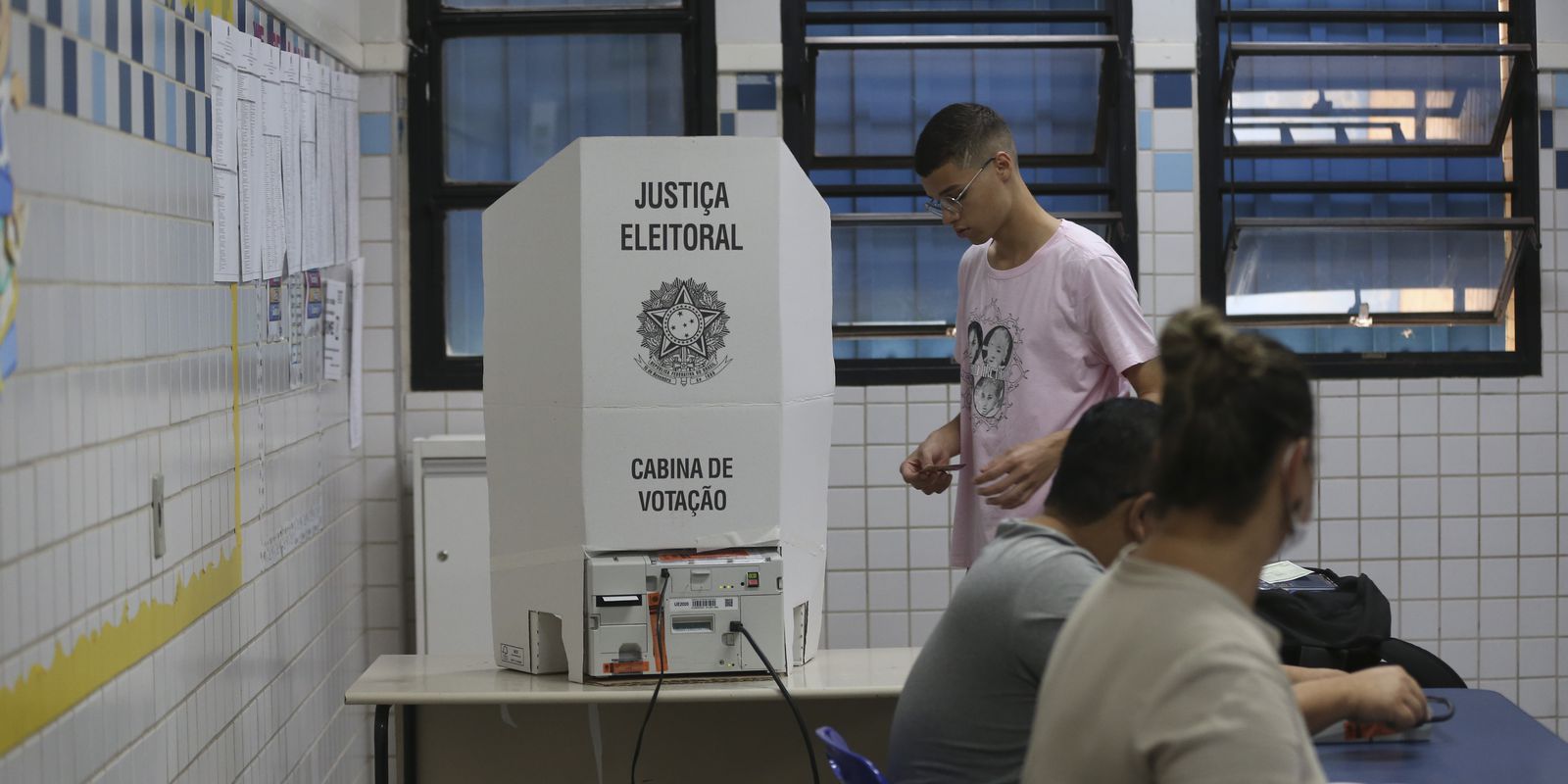More than 156 million Brazilians are eligible to return to the polls this Sunday (30), for the second round of elections for President of the Republic and for governors of 12 states: Alagoas, Amazonas, Bahia, Espírito Santo, Mato Grosso do Sul, Paraíba , Pernambuco, Rio Grande do Sul, Rondônia, Santa Catarina, Sergipe and São Paulo. According to data from the Superior Electoral Court (TSE), voting takes place in 5,570 Brazilian municipalities and in 181 locations abroad.
According to the Federal Constitution, electoral registration and voting are mandatory for those over 18 years of age. Voting is optional for the illiterate and those over 70, as well as for those over 16 and under 18.
Those who did not vote in the first electoral round, on the 2nd of this month, can vote in the second round, even if they have not yet justified their absence. This is because, according to the TSE, each voting round is an independent election, and failure to attend the first does not prevent participation in the second.
In the first round, around 32.7 million citizens eligible to vote did not turn up at the polls, which corresponds to 20.89% of the electorate, an index within the historical average of elections. State capitals and the Federal District will have free pass in public transport to try to contain the increase in abstention at this stage of the elections, which is usually higher than in the first round.
Time
The voting time this Sunday is the same as for the first round: from 8 am to 5 pm, Brasília time. This means that cities with different time zones must adapt to the time of the federal capital. Voters who are in the voting queue before 5 pm will have the right guaranteed, even with the closing time.
In the states of Mato Grosso, Mato Grosso do Sul, Rondônia and Roraima, voting takes place from 7 am to 4 pm local time and, in Acre, from 6 am to 3 pm local time. In 11 municipalities in Amazonas, which follow the time zone of Acre, voting also starts at 6 am and ends at 3 pm local time: Amaturá, Atalaia do Norte, Benjamin Constant, Eirunepé, Envira, Guajará, Ipixuna, Itamarati, Jutaí, Tabatinga and Sao Paulo de Oliveira. In other Amazonian municipalities (51), voting takes place from 7 am to 4 pm local time.
In the Fernando de Noronha Archipelago, in Pernambuco, voting takes place from 9 am to 6 pm, also local time. All this to coincide with Brasilia time.
polling places
Through the TSE Portal, it is possible to discover the voting location in the Voter and Elections tab, at the top of the page. When clicking on this topic, the person will be redirected to two menus: in Voter, just click on the link Polling place / polling stations. On the main page of the court, there is another possibility of consultation. Just access Voter Self-Service, Where to Vote and fill in the form available with the same personal information to obtain the data. This information can also be checked directly in the e-Título application.
In addition to these options, it is possible to consult the polling place by chatbot of TSE on WhatsApp. Just send a “hi” to the number +55 61 996371078 or click on the link https://wa.me/556196371078 and save the contact to receive the contents of the virtual assistant. The voter must access the main menu, click on Access Chatbot and then on View topics. Then, within Voter Services, simply choose the Voting Location option. From there, the query can be made by full name, voter registration or CPF.
Numbers
According to data from the Electoral Justice released on July 15, the number of voters has increased by 6.21% since the last general elections in 2018. At the time, the number of people qualified to vote was 147,306,275. In this year’s elections, there are 2,116,781 young people aged 16 and 17 qualified, but for them, voting is not mandatory. In 2018, this group was 1,400,617 people.
Also in relation to 2018, there was a growth of 51.13% in this age group of the electorate. According to the Electoral Justice, the increase is mainly a result of the actions promoted during the Young Voter’s Week. In the first four months of 2022 alone, Brazil gained more than 2 million young voters.
The electorate over 70, for which voting is optional, also increased. The jump was 23.82%, from 12,028,608 in 2018 to 14,893,281 in 2022. The number represents 9.52% of the entire electorate entitled to vote on October 2nd.








